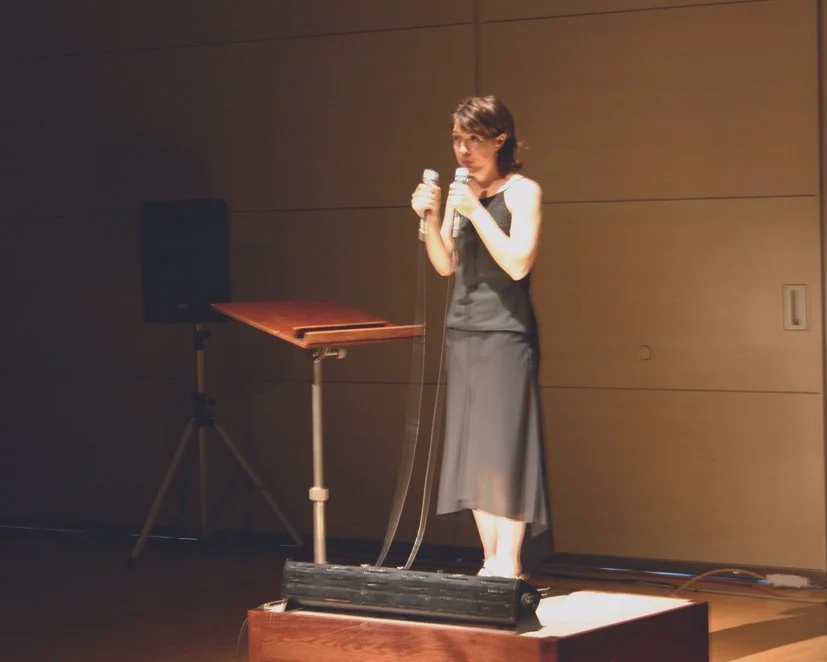This post was written by Timo Andres, one of Metropolis Ensemble’s featured composers in Spring 2010, for the upcoming Reverb concerts at (Le) Poisson Rouge.
As a composer, Erin Gee seems to have emerged fully-formed. She’s reluctant to ascribe any personal experiences or motivations to her work; quite the opposite, in fact. This is unexpected, even contradictory, because she plays an irreplaceable role in her pieces: as vocal soloist, performing in a made-up non-language constructed out of disconnected phonemes, vowels, sung tones, clicks, whistles, and sighs- a style she calls Mouthpiece.
To hear her describe it in precise, almost scientific terms might lead one to believe that Erin is not her music’s best salesperson; that is, until she gets on stage. She is a dynamo, unleashing torrents of non-words, at once somehow familiar and foreign-sounding. Emotionally and dynamically restrained, she nonetheless conveys a Pierrot-like dichotomy; playful, acrobatic, even funny, but with underlying melancholy (her brother, it just so happens, is a performer with the Cirque du Soleil). “As much as possible,” she says, “I wanted to try and remove the ego, identity, or character… moving in the direction of voice as a pure instrument.”
The process of formulating her unique vocal style appears to have been similarly dispassionate. “The Mouthpiece series grew out of a search on my own voice for possible sounds… looking most intently for timbral possibilities within a soft dynamic, and ways of quickly interspersing percussive sounds with disjointed and sparse sung tones.” What resulted from this search is a series of 19 works (so far), all titled Mouthpiece and all featuring Erin’s own voice. Though some are structured based on existing texts (some refer to ancient Japanese or Sanskrit), Erin uses those structures linguistically, divorced from any literal meaning. She’s re-thought a process humans execute without thinking - the formulation and vocalization of language - and put it in a blender.
Erin grew up in Iowa, but has studied and lived in Germany and Austria. The active surfaces of her music refer to a certain contemporary European sound, composers like Beat Furrer and Brian Ferneyhough, who write music of such complexity that it becomes a kind of minimalism. Yet one comes away from a piece such as Mouthpiece X with a sense of relentless stasis. Details fly by at an uncountable rate; but zoomed out, they become a heterophonic entity, like a stew with a vast number of ingredients, or a midwestern prairie viewed out the window of a speeding car. Erin describes it as “The shift between human and mechanical, psychological and physiological… an experimental non-language, containing the virtuosity of a native speaker.”

























